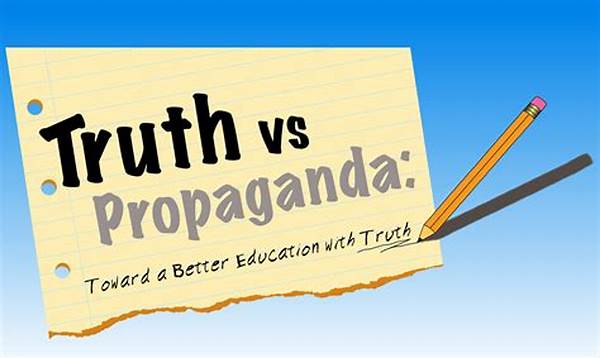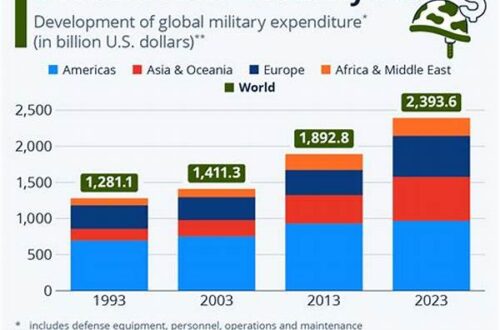Combat journalism is a field laden with challenges that test the limits of objectivity and reporting integrity. The dynamism of conflict zones creates an environment where the dissemination of information often tilts precariously between truth and propaganda. This reality cultivates a pressing need to distinguish veracity from manipulation to fulfill the journalistic mission of delivering factual news to the public. In essence, the distinction between truth versus propaganda in combat journalism often influences public perception and political discourse.
The Complexity of Reporting in Conflict Zones
In conflict zones, journalists navigate a myriad of obstacles that include restricted access to reliable sources and the omnipresent peril of violence. This environment fosters a breeding ground for propaganda, often leveraged by conflicting parties to sway public opinion or undermine adversaries. The dichotomy of truth versus propaganda in combat journalism thus emerges, as reporters strive to parse out authentic narratives from orchestrated misinformation. The significance of maintaining journalistic integrity becomes paramount, as stakeholders with vested interests attempt to manipulate narratives in their favor. Journalists must rely on careful source verification and critical analysis to ensure their reports faithfully reflect the multifaceted reality of conflict situations.
Combat journalism requires a balanced approach to ensure that reporting is not inadvertently skewed by perspectives from those who operate within the conflict dynamics. Practitioners are tasked with the crucial mandate of providing audiences with nuanced understandings, rather than simplistic binaries. The challenge becomes more pronounced when misinformation, often masquerading as truth, inundates the communication channels. Hence, truth versus propaganda in combat journalism embodies a constant tug-of-war between fact-based reporting and strategic narratives crafted for influence.
The Role of Journalistic Integrity
1. Journalistic integrity acts as a compass guiding reporters through the convoluted terrains of engagements fraught with biases, often highlighting the dichotomy of truth versus propaganda in combat journalism.
2. The ethos of journalistic integrity mandates an unwavering commitment to truth, urging reporters to navigate through layers of potential misinformation aimed at distorting facts.
3. A discerning eye becomes indispensable in distinguishing credible accounts from those concocted to serve propagandistic intent, thereby addressing truth versus propaganda in combat journalism.
4. Adherence to ethical reporting norms helps safeguard against the dilution of authenticity, ensuring that narratives are rooted in empirical truth rather than manufactured distortions.
5. A steadfast focus on verification processes aids in the filtration of information, outlining the stark differences between unbiased truth versus propaganda in combat journalism.
Navigating Misinformation in War Reporting
War reporting is particularly rife with challenges as journalists contend with the pervasive threat of misinformation. This facet of reporting necessitates a vigilant approach, where every piece of information is meticulously scrutinized for signs of bias or intention. Truth versus propaganda in combat journalism is a delicate balance that frontline reporters are constantly negotiating, given the stakes involved in wartime communication. The ability to discern facts from fiction not only safeguards the credibility of journalists but also fortifies public trust in the news conveyed.
In dissecting wartime narratives, reporters must remain wary of deliberately distorted accounts seeded by entities with ulterior motives. Propaganda, deployed as a tool for psychological warfare, aims to confuse and mislead, making the journalist’s task of accurately informing the public more daunting. Deconstructing the layered complexities of wartime stories requires journalists to exercise caution and professionalism, earnest in their endeavor to uphold the truth versus propaganda in combat journalism.
The Influence of Political Agendas
Truth versus propaganda in combat journalism often finds itself entwined with political agendas that shape narrative landscapes in conflict zones. Political entities frequently craft narratives to serve strategic interests, attempting to mold public perception and international opinions. For journalists, understanding the intricacies of political influences becomes essential to distinguish between factual reporting and subtle propagandist efforts that infiltrate everyday information dissemination.
Political motives can cloud objectivity, thereby necessitating vigorous checks by journalists to authenticate narratives. Combat journalism demands a critical examination of sources, recognizing that political biases and agenda-driven communication often masquerade as the absolute truth. In this sphere, the role of the journalist is to cut through the prevailing rhetoric and maintain a focus on unbiased, comprehensive reporting that aligns with the ethical standards of the profession.
Maintaining Objectivity Amidst Bias
The pursuit of objectivity in combat journalism embodies a formidable undertaking, given the prevailing biases that often permeate conflict zones. These biases impede the accurate retelling of events and present challenges in addressing the dichotomy of truth versus propaganda in combat journalism. Journalists must endeavor to separate personal opinions and inherent biases from reporting, fostering a culture of balanced and fair reporting.
The responsibility lies with reporters to forge pathways that allow for an impartial depiction of reality, critically analyzing all available perspectives. By prioritizing the elucidation of diverse viewpoints, journalists enhance their capacity to provide audiences with a well-rounded comprehension of ongoing events. This stalwart commitment to objectivity aids in reinforcing the esteemed integrity of journalism, even amidst adversities marked by truth versus propaganda in combat journalism.
The Ethical Implications of Combat Reporting
Truth versus propaganda in combat journalism carries significant ethical implications, influencing not only the outcomes of conflicts but also the broader societal ramifications of the narratives constructed. Journalists possess a heightened responsibility to adhere to ethical standards, sustaining the integrity of their role as purveyors of truth amidst the turmoil of conflict. In fulfilling their duties, journalists must continuously assess their own biases and the potential impact their reporting may engender.
Ethical reportage in combat zones also requires careful consideration of the sources’ safety, ensuring that individuals providing information are not subjected to harm due to their involvement with the media. The balance between informing the public and protecting the rights and safety of those entrusting journalists with their stories remains crucial in preserving the ethical compass that guides combat journalism.
Conclusion
In conclusion, the interplay of truth versus propaganda in combat journalism stands as a critical concern that necessitates diligent attention from reporters tasked with conveying authentic and transparent information. This intricate balance requires a resilient commitment to ethical journalism, characterized by thorough fact-checking and appreciation for the complexities of war narratives. Combat journalism demands a high level of discernment and ethical fortitude, particularly in environments where propaganda thrives.
Journalists operating in conflict zones must prioritize the unwavering pursuit of truth, conscientiously navigating the blurred lines of communication where propaganda seeks to sway or deceive. By maintaining rigorous standards of integrity and ethical accountability, journalists can uphold the crucial role of informing the public, reinforcing the foundational trust upon which the profession stands. This steadfast adherence to truth versus propaganda in combat journalism remains paramount in fostering a more informed and conscientious global public.





